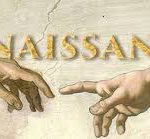Greece has entered 2025 at a crucial crossroads, where politics, economics, and diplomacy intersect to shape the country’s path forward. As a member of the European Union and NATO, Greece carries both domestic responsibilities and global influence. From tackling economic modernization to addressing regional security concerns, Greek politics this year is marked by a delicate balance between reform, resilience, and international cooperation.
The government in Athens continues to prioritize modernization, with a strong focus on economic recovery following inflationary pressures, green energy development, and digital transformation. At the same time, Greek leadership must navigate challenges such as migration management, relations with Turkey, and maintaining its role within the broader European Union. These factors together have created a dynamic and evolving political environment that is being closely watched both domestically and internationally.
One of the most significant political issues in 2025 is the government’s commitment to balancing fiscal discipline with public investment. After years of austerity, Greece is now working to boost infrastructure, support innovation, and ensure sustainable growth. Programs encouraging startups, especially in technology and renewable energy, are becoming political priorities, as the nation seeks to build resilience for future generations. This approach has resonated strongly with young voters who see opportunity in a digital and globally connected economy.
Migration policy also remains central to political debates in Greece. With its position as a gateway to Europe, the country faces constant pressure to balance humanitarian responsibilities with national security concerns. The government has implemented stricter border controls while also coordinating with EU partners to establish fairer migration burden-sharing mechanisms. However, political opposition continues to question whether these policies adequately reflect Greece’s humanitarian traditions.
On the international front, Greece is investing in stronger ties with both European and Mediterranean partners. The longstanding disputes with Turkey over maritime boundaries and natural gas exploration in the Aegean Sea remain unresolved, but diplomatic dialogue has intensified in recent months. Greece has also expanded its role in NATO operations and regional security partnerships, underlining its commitment to collective stability.
Domestically, political polarization continues to be a challenge. While the ruling government emphasizes reform and modernization, opposition parties argue for stronger social protections, greater welfare support, and more inclusive policymaking. This political diversity highlights Greece’s vibrant democratic tradition but also complicates consensus-building on key reforms.
Perhaps one of the most defining elements of Greek politics in 2025 is the effort to redefine the nation’s identity in the modern world. Greece seeks to position itself as a bridge between Europe, the Middle East, and Africa, capitalizing on its geography, cultural heritage, and economic potential. Political leaders are increasingly framing the nation as not only the cradle of democracy but also a forward-looking hub of innovation and cooperation.
Public sentiment reflects both optimism and caution. Many citizens are hopeful that reforms in digital infrastructure, renewable energy, and economic transparency will lead to a more prosperous future. At the same time, concerns about cost-of-living pressures, job security, and social equality continue to dominate political conversations. The challenge for the Greek government lies in proving that its vision for modernization will deliver tangible benefits for ordinary people.
In 2025, Greece’s political trajectory will depend on how well it can balance local needs with global responsibilities. By strengthening alliances, addressing internal inequalities, and maintaining a steady course of reform, Greece has an opportunity to emerge as a stronger and more influential player on the world stage.
FAQs
Q1: What are the biggest political challenges Greece faces in 2025?
The key challenges include balancing economic growth with fiscal discipline, managing migration flows, addressing regional tensions with Turkey, and maintaining domestic political consensus.
Q2: How is Greece handling its economic recovery?
Greece is investing in infrastructure, digital transformation, and renewable energy projects, while also seeking foreign investment and promoting entrepreneurship.
Q3: What role does Greece play in regional security?
As a NATO member, Greece contributes to Mediterranean and European stability. Its strategic location makes it a central player in regional defense, migration control, and energy security.
Q4: How does public opinion affect political decision-making in Greece?
Public opinion plays a crucial role, with younger voters pushing for innovation and digital progress, while others prioritize social protections and job security.
Q5: Is Greece improving its relations with Turkey?
Relations remain tense, but diplomatic talks have increased in 2025. Both sides are attempting to manage disputes through negotiation while maintaining strong defense positions.
Conclusion
Greece’s political journey in 2025 is a story of balancing reform with resilience, tradition with modernization, and domestic needs with international influence. While the challenges are complex, the opportunities are equally significant. If the government successfully combines economic modernization, regional diplomacy, and social stability, Greece could secure a stronger role not only in Europe but across the global stage. The coming months will be critical in determining whether Greece can transform its vision into lasting progress, ensuring both stability and prosperity for its people.











